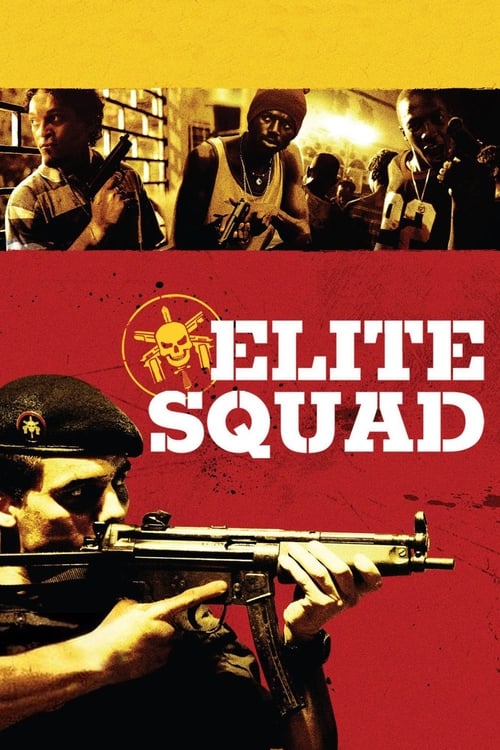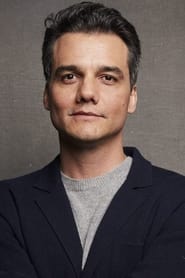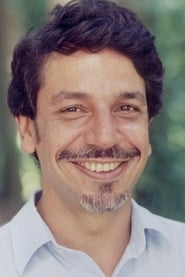Cast
View AllWagner Moura
as Capitão Nascimento
André Ramiro
as André Matias
Caio Junqueira
as Neto
Milhem Cortaz
as Capitao Fabio
Fernanda Machado
as Maria
Maria Ribeiro
as Rosane
Fábio Lago
as Baiano
Erick Oliveira
as Marcinho
Marcello Escorel
as Coronel Otávio
Roberta Santiago
as Rose
Fernanda de Freitas
as Roberta
Paulo Vilela
as Edu
Juliano Cazarré
as Soldado Tatu
Guilherme Guaral
as Marimbondo
André Di Mauro
as Pedro Rodrigues
Crew
Director
- José Padilha
Producer
- José Padilha
- Marcos Prado
Reviews
Andres Gomez
Decent movie with lots of strongly violent action. It stands up because it is staged in Rio and created by Brazilians.
The plot is not very surprising but good enough.
Oct 5, 2015
Filipe Manuel Neto
**One of the best films that Brazil exported internationally.**
Being Portuguese, I believe that I know the realities of Brazil reasonably better than most foreigners. After all, historical and cultural ties connect the two countries to this day. For this reason, I am not at all surprised by the portrait that this film leaves us, about a world that rarely appears in the tourist magazines of Rio de Janeiro: the poor areas that, from the top of the hills, observe the noblest neighborhoods of the city.
I could talk a little more about these slums, called “favelas”, but the truth is that I don't know much about them. Until the first decades of the 20th century, the visitor walking the streets of Rio de Janeiro, São Paulo or other cities would observe that the poorest generally lived in very compartmentalized buildings, called “cortiços”, scattered throughout the old neighbourhoods of the city. From the middle of the century, however, we witnessed the renewal and gentrification of the urban centers, with the demolition of large degraded areas and the building of modern structures and even skyscrapers. Pushed to the periphery, the marginalized ended up building their homes freely, without a plan or project, using leased or unowned land, giving rise to chaotic and disorderly urban tissues that climbed the hills. Total poverty, which has always driven Man to crime, was soon associated with drug trafficking and consumption, and other crimes such as illegal gambling, arms dealing and prostitution, and led to the birth of criminal mafias, heavily armed, which took advantage of the geography and difficulty of entering some of these “favelas” to transform them into fortresses, where not even the regular police dare to enter.
Thus, the issue of favelas was, and still is, a serious social, urbanistic and human problem for Brazilian cities. I don't have reliable data, but as far as I know, there is a long way to go to solve issues such as the lack of infrastructure, the lack of security of the land and the construction of houses in unstable lands. I know that measures have been taken to resolve them, and above all to combat crime (the film reveals this, taking advantage of Pope Benedict XVI's visit), but to what extent are they effective? What I can say is that, for now, Rio and São Paulo are off the list of the most dangerous cities in Brazil, but there is much to be done in other cities such as João Pessoa, Fortaleza, São Salvador or Natal.
In this film, we follow the journey of two recruits on a course for an elite police force, trained to intervene in the most complicated scenarios: the BOPE. Each is guided by their own reasons, but they are united by a feeling of weariness at the impunity of criminals. The head of the recruit, Captain Nascimento, is also at the center of the plot, as he is discreetly looking for a replacement in order to retire and be able to dedicate the rest of his time to his family, and the little psychological sanity he has left. It is a very raw portrayal of the extremely violent training of these units which, however, prepares them for the authentic urban warfare they have to face. It also lets us foresee a little of the gravity of the problem itself: armie-like bandits who commit brutalities without thinking twice, and a police force that could go to war if needed.
With this film, Wagner Moura achieves one of the most outstanding and important works of his career. He was not, until this film, one of the great Brazilian actors, one of those that we always remember when we think of Brazilian drama. However, I had already been appreciating his quality in some TV works he did, and even so, it was quite impressive to see him here. And although the film features other talented actors, such as André Ramiro and Caio Junqueira, it is Moura who stands out and dominates the film. I also liked the work of Fernanda Machado who, in a much more discreet way, shows the somewhat utopian and dreamy way in which upper-class youngsters seek to cultivate a sense of social justice without knowing, however, how to solve the problems at their root.
Technically, the film stands out for its enormous realism. It's a work of fiction, the characters and situations are invented, but everything was thought to seem true and authentic as in a documentary. We observe this, for example, in the enormous amount of profanity and slang used in the dialogues, or in the careful selection of the filming locations used, which include some “favelas” in Rio. Another point of praise is the quality of the action scenes, worthy of a big-budget American film and filled with good special effects and sound. It is a film inappropriate for children or to watch with that narrow-minded granny, but very good, one of the best films that Brazil managed to export internationally.
Dec 15, 2022
Abrazilliancheeze
**As a brazilian, i can approve this movie as relatable**
As a brazilian, this movie i can agree with. I love the drama, the action parts are good. But best of all, THE POLICE. In Rio de Janeiro, there are favelas that have drugs. THE WHOLE COUNTRY IS RUN BY CORRUPTION AND GREED. If you are portuguese, download the app called Globo and read the news. There are a bunch of cartels, gangs, and worst of all: MAFIAS. They've spread to the U.S. In Brazil, you cant trust the police, nor the government. The president of Brazil (bolconario or whatever his name is) got arrested for corruption because he stole from the government! This movie is relatable.
Nov 25, 2024
Thematic Analysis
As a dramatic work, Elite Squad examines complex human relationships and emotional struggles against the backdrop of contemporary challenges that mirror our own experiences. The character development particularly stands out, offering viewers a chance to reflect on their own life journeys.
Director José Padilha brings their distinctive visual style to this film, continuing their exploration of themes seen in their previous works while adding new elements. Their approach to character development and emotional depth creates a viewing experience that rewards close attention.
Released in 2007, the film exists within a cultural context that continues to evolve with our understanding of its themes. Its critical acclaim reflects its artistic achievements and its place in cinema history.
Did You Know?
- The production of Elite Squad took approximately 5 months from pre-production to final cut.
- With a budget of $4.0 million, the film proved to be a financial success, earning back its investment and more.
- The final cut of the film runs for 115 minutes, though the director's initial assembly was reportedly 162 minutes long.
- Several scenes were filmed in multiple locations to capture the perfect setting.
- The costume department created over 217 unique costume pieces for the production.
- The cast underwent specialized training for 3 weeks before filming began.
Historical Context
- In 2007, when this film is released:
- The September 11 attacks changed global security and politics.
- Digital technology was disrupting traditional media and entertainment.
- Digital filmmaking technologies were transforming production processes and creating new opportunities.
How This Film Stands Out
While Elite Squad shares thematic elements with other films in its genre, it distinguishes itself through its unique approach to storytelling, visual style, and character development.
Unlike Two Irenes, which takes a more conventional approach to its subject matter, Elite Squad offers a fresh perspective through its innovative visual language and narrative structure.
While films like City of Men and Sahara explore similar territory, Elite Squad stands apart through its distinctive directorial vision and pacing.
This film's unique contribution to cinema lies in its bold artistic choices and willingness to challenge viewer expectations, making it a valuable addition to its genre.
Details
- Release Date: October 12, 2007
- Runtime: 1h 55m
- Budget: $4,000,000
- Revenue: $14,759,148
Where to Watch






















